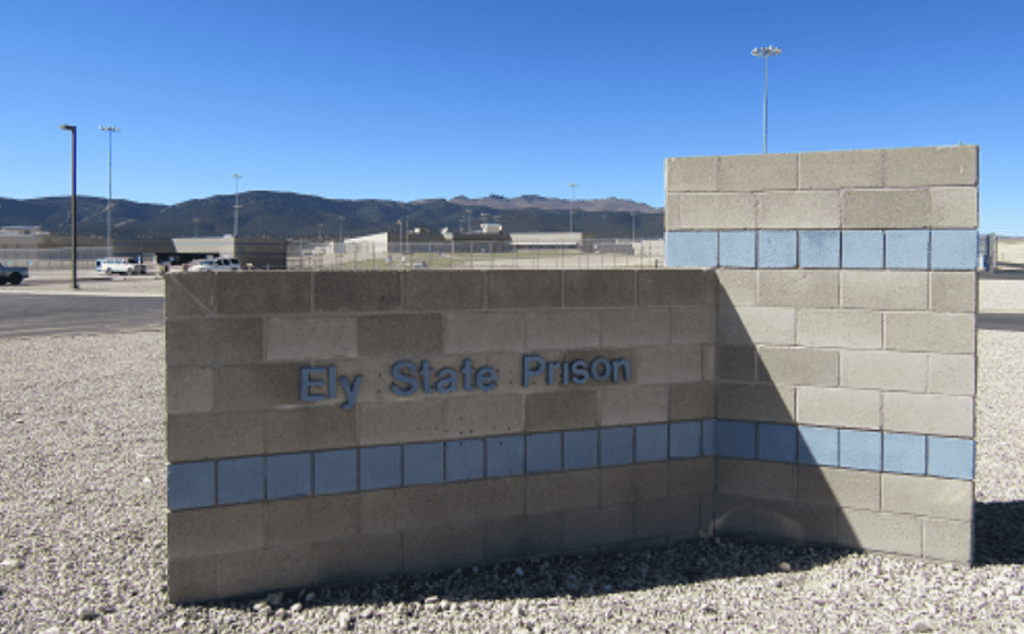By SAM METZ AP / Report for America
CARSON CITY, Nev. (AP) — Nevada lawmakers revised redistricting maps on Monday to count hundreds of residents at their pre-incarceration addresses rather than at the prisons where they were counted during the 2020 census.
The reallocation forced lawmakers to revise proposals under consideration in the special legislative session underway, during which they are redrawing congressional and statehouse districts. The Assembly passed amended maps on Monday. They now go to the Senate for consideration.
Nevada is one of 11 states with laws requiring inmates be reallocated to their pre-prison addresses for redistricting purposes. Most other states count inmates where their prisons are located — a practice detractors say artificially inflates the population and voting power of rural, mostly white prison towns at the expense of minority communities disproportionately incarcerated.
In 2019, Nevada lawmakers passed a bill to direct the Department of Corrections to collect the last known residential address of everyone in custody, so they can be counted in their home communities, rather than where they are incarcerated.

“These inmates do not participate in the social or economic environment of the cities and towns where the prisons are located, yet the are counted in population figures that impact representation,” Assemblywoman Sandra Jauregui, the bill’s sponsor, said in a 2019 hearing.
People incarcerated are counted in the redistricting process. But they cannot vote until they are released.
Prison officials acknowledged weeks ago that they only had addresses for roughly half those in custody. Many inmates declined to provide the information or did not have a clear pre-prison addresses because of factors like homelessness, transiency or long-term sentences, they said.
The data gap troubled lawmakers and sparked legal threats from civil rights advocates. The American Civil Liberties Union of Nevada warned that redistricting without reallocating inmates would not only fail to comply with the 2019 law, but also unconstitutionally lead to districts of different population sizes.
“The Legislature cannot rely on current numbers provided by the State Demographer without violating the Nevada Constitution and subjecting the state to potential litigation,” ACLU attorneys Holly Welborn and Chris Peterson wrote in a letter to state officials two weeks ago.
Reallocating an additional 1,612 inmates increased the portion who will be counted at their pre-prison addresses from 51% to 65%.
Prison officials said 12,214 residents were incarcerated during the 2020 census count. The maps Nevada lawmakers are considering in the special legislative session underway reallocate 7,887 to their last known residential addresses.
Additional address provided came from Department of Health and Human Services and Department of Motor Vehicles databases, DuAne Young, a policy director in the governor’s office, wrote in a response letter to the ACLU.
Legislative staff added the addresses on Saturday. They were incorporated into new draft maps proposed by Democrats in the statehouse on Monday.
Assembly Speaker Jason Frierson and Senate Majority Leader Nicole Cannizzaro said in a joint statement that the changes reflected a “continued commitment to fair maps that accurately reflect the diversity of our state.”
The eleventh-hour addition upset Republicans because it invalidated all of the alternative map proposals on the second day of the special legislative session, including those that they submitted.
“Changing the population data overnight has discredited all maps 24 hours into the 33rd Special Session. This disruption is unfair to every Nevadan who has participated in the redistricting process thus far,” Senate Minority Leader James Settelmeyer and Assembly Minority Leader Robin Titus said in a joint statement.
Though less than 1% of Nevada residents are incarcerated, the extent to which inmates are reallocated has a significant impact on the recorded population of rural areas where many prisons are located.
In rural Pershing County, where about 20% of the population resides at a prison in Lovelock, 644 incarcerated state residents were originally reallocated, decreasing the total population by almost 10%. An additional 211 inmates were reallocated on Saturday, increasing the population lost through reallocation to 13% — more than one out of every eight residents.
A 65% reallocation rate puts Nevada on par with most of the 11 states that reallocate residents to their pre-prison addresses, Welborn, the ACLU attorney, said.
___
Sam Metz is a corps member for the Associated Press/Report for America Statehouse News Initiative. Report for America is a nonprofit national service program that places journalists in local newsrooms to report on undercovered issues.

